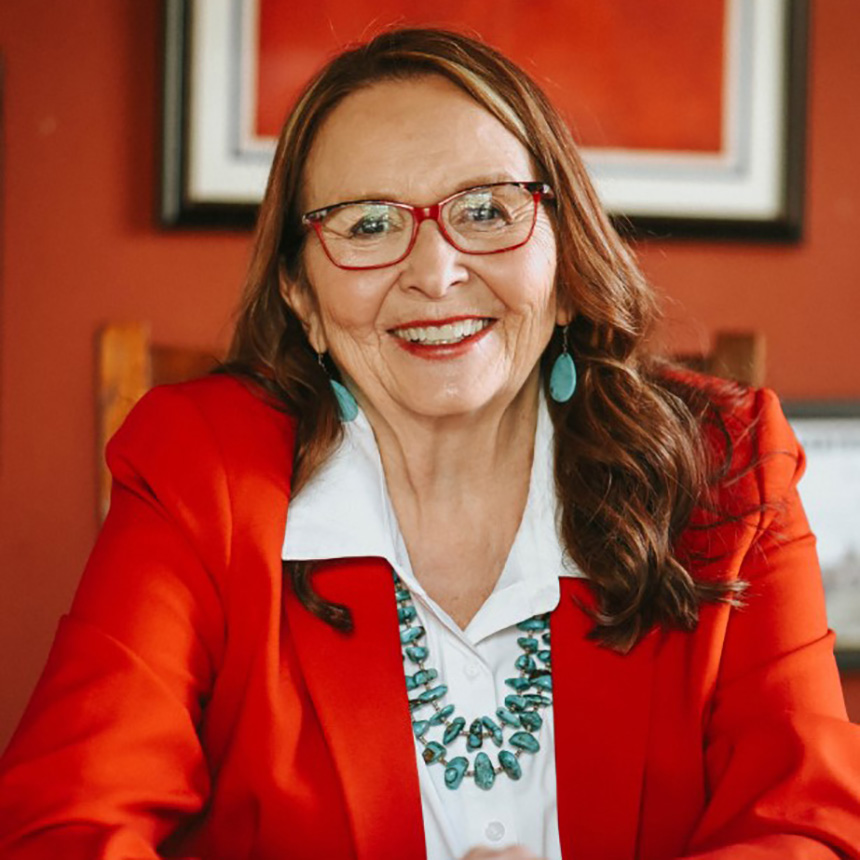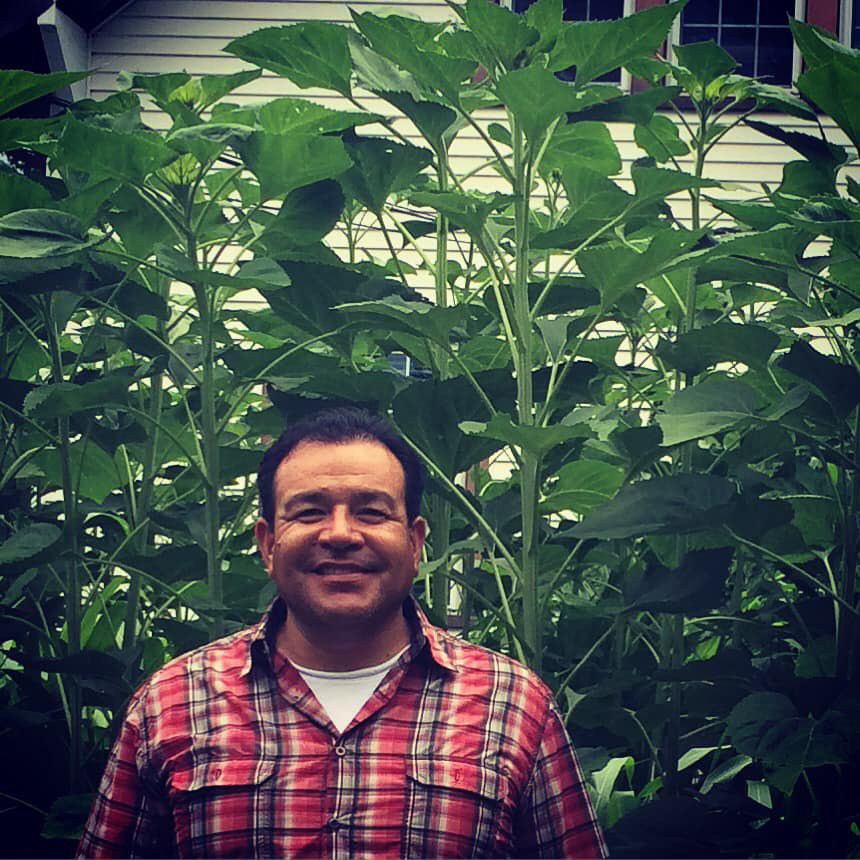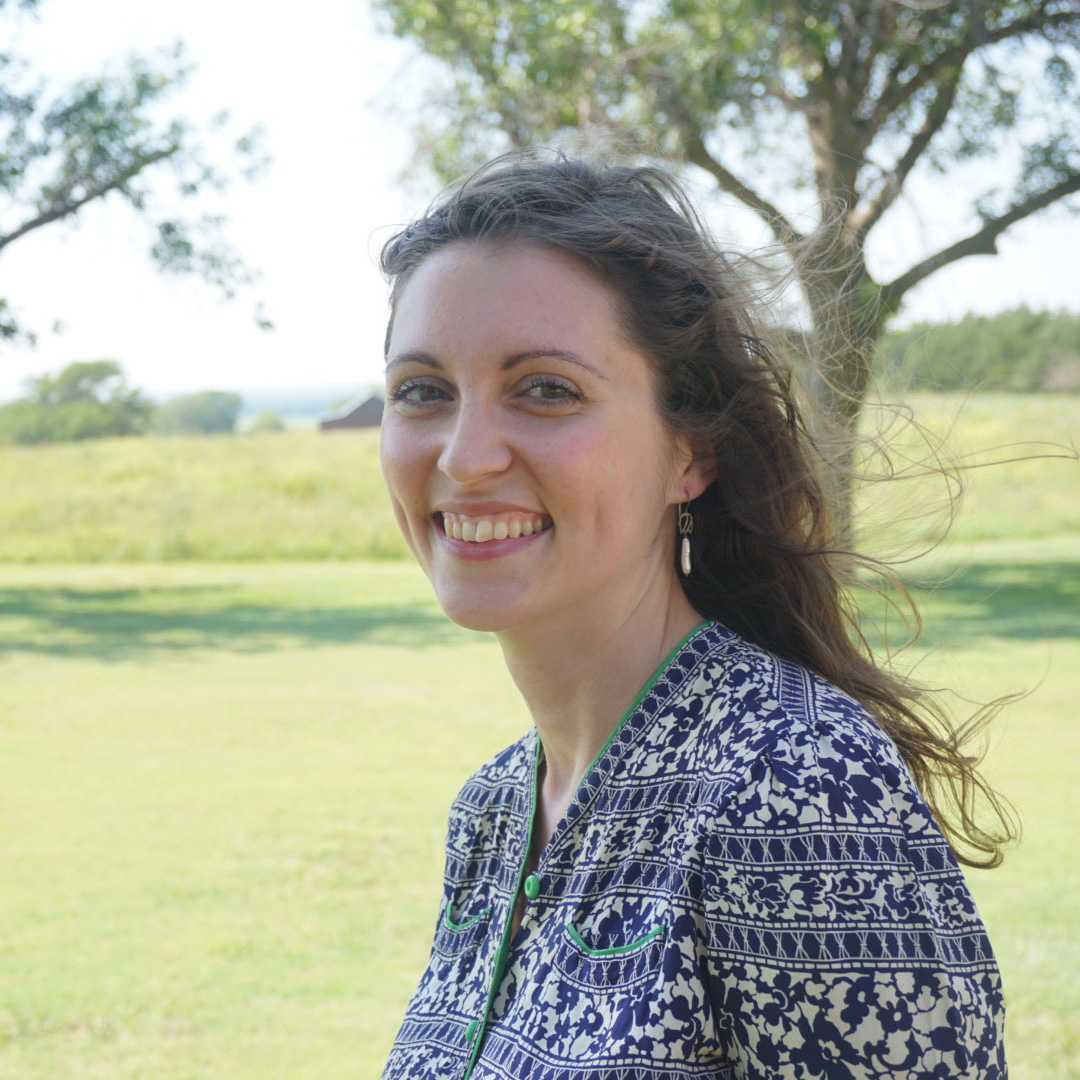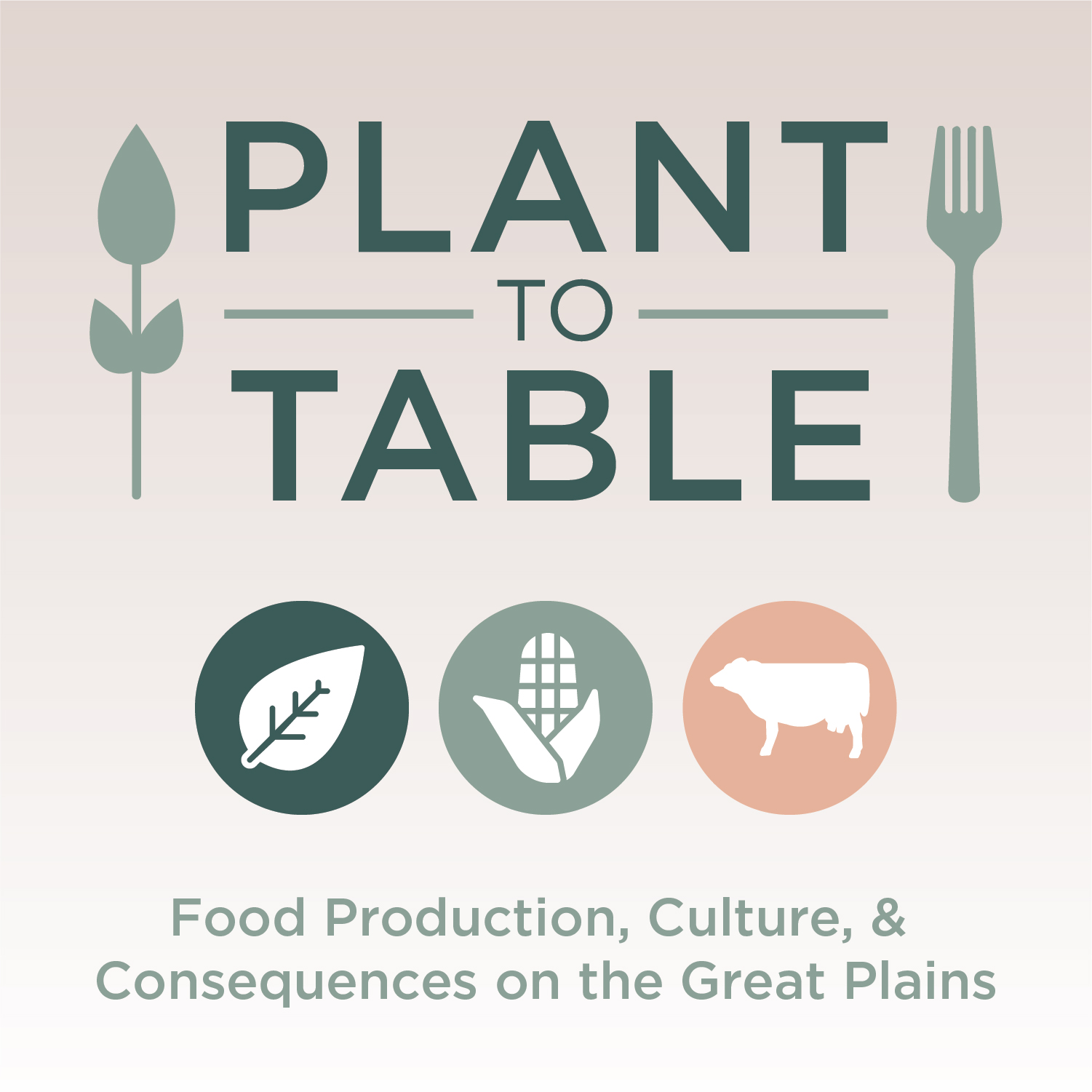
Plant to Table
Food Production, Culture, and Consequences on the Great Plains
April 18-20, 2023 | Lincoln, Neb.
The Center's 48th annual interdisciplinary conference focuses on Indigenous food sovereignty movements; the long-standing significance of the meatpacking industry; related topics of labor, immigration, and health and safety standards; and the environmental impacts of food production and consumption. The event will include keynote speakers from some of our region’s leading experts, panel discussions on the latest research, demonstrations, tastings, workshops, and of course...food! The diversity of food from the Great Plains will be highlighted through shared meals. This conference is meant for a wide audience and welcomes the general public, scholars, students, business owners, community leaders, and life-long learners.
Subscribe to our email list below to get updates on the conference. Please see the Eventbrite registration page for ticket details, FAQ, and more. Financial assistance is available, please contact the event organizers for more details at acloet3@unl.edu.
Supported by UNL's College of Arts and Sciences, Ethnic Studies and Indigenous Studies, College of Law, Institute of Agriculture and Natural Resources, College of Agricultural Sciences and Natural Resources, Agricultural Research Division, College of Education and Human Sciences, Nebraska Extension, and the Office of Research and Economic Development; University of Nebraska at Kearney; and the UNMC College of Public Health. Presented in partnership with the Consulate General of Canada in Minneapolis.
Speakers and Schedule
April 18: Great Plains Art Museum
5:30 p.m.: Reception
6 p.m.: Keynote Taylor Keen
Sacred Seed: Indigenous Environmentalism and Living Red in the Postcolonial Era
April 19: East Campus Union
8:30 a.m.: Check in desk opens
9-10 a.m.: Keynote Aubrey Streit Krug
Learning the Roots of the Plants We Live By: Perennial Cultures and Perennial Grains in the Great Plains, Great Plains Room B-C
10:15–11:30 a.m.: Concurrent Session 1
A. To Secure and Sustain: Managing Risks and Hazards in the Heartland, Arbor Room
In this panel, speakers will cover both human and environmental risk relating to agriculture and rural areas.
Dr. Jenny Barker-Devine, Illinois College: "Protection for All Citizens": Civil Defense and the Problem of Evacuating Missouri’s Urban Centers During the Cold War, 1960-1980
In 1962, the Missouri Civil Defense Agency prepared for nuclear war by planning to evacuate urban populations to caves and mines in rural areas. Robert C. Ellis, the Jefferson City engineer who led the federally-financed project, estimated that mines and caves could protect almost three-quarters of Missourians from radioactive fallout. The plan lacked one crucial element: meeting the basic needs of urban refugees. State and federal policy makers assumed rural Americans would voluntarily operate reception centers, and provide food, sanitation facilities, and first aid. Ordinary citizens, on the other hand, reacted with skepticism and even hostility.
Dr. David Vail, UNK: A Conservation Civil Defense: The Great Plains Agricultural Council in the Early Cold War
Vail examines the shifting roles of agricultural scientists, government policymakers, and farmers in the midst of increasing ecological risks to the North American Grasslands in the 1950s. The Great Plains Agricultural Council (GPAC) conducted numerous interdisciplinary experiments to protect harvests and preserve “industrial agriculture environments.” The efforts to investigate climate changes, crop disease, chemical toxicity, and drought connected to earlier ideas about conservation of natural resources before the Rachel Carson and the Silent Spring era, offering solutions to make the Great Plains’ agricultural lands more protected and secure in the early Cold War era.
Dr. Debra Reid, The Edison Institute, The Henry Ford: Nebraska Farm Families: Cultural Footprints
Reid focuses on human relationships to the land in one Great-Plains location – Mennonite families in the Beatrice, Neb. area – over time. The lens into this history comes from a Gem grain grader / winnowing machine and the family history that accompanied it. The grain grader documents cultural persistence that contrasts with monoculture. While the grain grader became obsolete as family farm practices changed, the notion of place- and community-focused farming endured. The question remains about how the next generation will align their agricultural practices with place and community and human survival.
B. Agriculture, Cattle, and Livelihoods: Safety Culture on the Great Plains, Prairie Room
This panel provides an overview of agriculture in the Great Plains, with a special emphasis on beef cattle production. Additionally, panelists will highlight health and safety risks associated with agriculture; discuss perceptions of safety as described and experienced by cattle feedyard workers and managers; and describe the NIOSH Agricultural Safety and Health Centers program and their current efforts to improve safety.
Dr. Athena Ramos, Associate Professor, Department of Health Promotion, Center for Reducing Health Disparities, UNMC; Dr. Ryan Klataske, Anthropologist and Ethnographer; Dr. Aaron Yoder, Associate Professor, Department of Environmental, Agricultural and Occupational Health, UNMC
C. Homeland Pride: Honoring Our Ancestors, Great Plains Room A
The four Pawnee Bands moved from Nebraska and Kansas to a reservation in Oklahoma in the 1870s and set up what would be called the Pawnee Nation. The present-day Pawnee Seed Preservation Society (PSPS) pertains to a collaboration between volunteer gardeners in Nebraska and Deb Echo-Hawk, Keeper of the Seeds for the Society, to revive sacred Pawnee crops in their native soil and climate of Nebraska.
Deb Echo-Hawk (Pawnee Nation), Keeper of the Seeds, Pawnee Seed Preservation Society; Ronnie O'Brien, Emeritus Instructor, Hospitality Management and Culinary Arts, CCC; Kahheetah Barnoskie, (Pawnee Nation of Oklahoma), Master's Student, Agronomy, UNL; Del Ficke, Owner, Ficke Cattle Company – Graze Master Genetics ®; Bill Bolte, Grower for Pawnee Seed Preservation Society
11:45 a.m.-1:30 p.m.: Keynote Sarah Vogel
The Farmer's Lawyer, Great Plains Room B-C, Lunch provided
1:45–3 p.m.: Concurrent Session 2
A. Food and Environmental Impacts: Action Opportunities on Local to Global Scales, Arbor Room
This session features four Daugherty Water for Food Global Institute (DWFI) Faculty Fellows describing how they work in Nebraska, the Great Plains, and internationally to support the mission of the Institute.
Dr. Georgina Bingham, Research Associate Professor, Stored Product Pest Laboratory Lead, Entomology, UNL; Dr. Kelly Helm Smith, Assistant Director, Communication Coordinator, National Drought Mitigation Center, UNL; Dr. Elizabeth VanWormer, One Health Coordinator, UNL; Dr. Harkamal Walia, Professor, Heuermann Chair of Agronomy, UNL; Moderator: Dr. Peter G. McCornick, Executive Director, Daugherty Water for Food Global Institute, University of Nebraska
B. Building Indigenous Sovereignty and Equity into Canadian Food Systems, Great Plains A Room
Identifying historical and structural barriers that have limited participation of Indigenous people in science and agriculture is a responsibility for participants across all scales. Creating long-term strategic priorities and initiatives across the sector to build leadership and innovation in land-based practices that center Indigenous people, principles and values will enhance our ability to continue to meet the agricultural challenges of the future while creating Indigenous leadership in food systems.
Dr. Kyle Bobiwash (Mississauga First Nation), Assistant Professor and Indigenous Scholar, Agricultural and Food Sciences, University of Manitoba
C. Social and Environmental Impacts of Food Systems in Art & Design of the Americas, Prairie Room
This panel will look at art practices in the twentieth and twenty-first centuries that have addressed the social or environmental impacts of food systems through four separate presentations. Art historical approaches, such as close looking at material objects, critique of representational strategies, and analyses of performance and participation, can be productively used to better understand how food systems affect the human and non-human subjects that interact with them.
Dr. Katie Anania, Assistant Professor, Art History, UNL: Let’s Have Lunch at El Hangar: Queer Mutual Aid and Anti-Colonial Agriculture in Puerto Rico
Dr. Dorota Biczel, Postdoctoral Research Fellow, Art, Data, and Environment/s project, UNL: To Whom Does Corn Matter? Diversity vs. Monocropping across the Americas
Dr. Jessica Santone, Postdoctoral Research Fellow, Art, Data, and Environment/s project, UNL: Plants as Teachers: Pedagogical Gardens as Socially Engaged Art Practices
Cooper Stiglitz, Master's Student, Art History, UNL: Buffalo Paintings by A.D.M. Cooper and Imperialistic Mythologies of the American Western Frontier
D. Indigenous Food Workshop with Chef Anthony Warrior (Sicangu-Bad Nations and Absentee Shawnee/Mvskoke Creek), East Campus Wellness Kitchen
3:15–4:30 p.m.: Concurrent Session 3
A. Guatemalans of the Great Plains: Exploring the Educational Implications of Meatpacking and Migration for Immigrant Communities of Two Geographies, Arbor Room
In this interactive session, panelists from the field of education will discuss the current contexts, challenges, and possibilities of one such population, Guatemalan children and families living in Nebraska, and how schools and communities could/should/are responding in various ways.
Odwuar Quiñonez: Kindergarten Teacher, Lexington Public Schools; Daniel Moran, Kindergarten Teacher and Dual Language Coordinator, Fremont Public Schools; Hector Palala-Martínez, Graduate Teaching Assistant, Teaching, Learning, & Teacher Education, UNL; Dr. Chandra Diaz, Associate Professor and Department Chair, Teacher Education, UNK; Dr. Edmund ‘Ted’ Hamann, Professor, Teaching, Learning, & Teacher Education, UNL; Moderated by Dr. Amanda Morales, Associate Professor, Teacher, Learning & Teacher Education, UNL
B. Innovative Cropping for Nebraska, Prairie Room
Panelists will explore the many opportunities for new crops for Nebraska agriculture with greater revenue, climate change resiliency, and nutritional value. Panelists will invite ideas and partnerships, as they are working toward the creation of a Consortium—Agricultural Innovation for Nebraska Farmers.
Cindy Schofield, Owner, Homestead Aronia: What's That? It's the Nutritional Power of Aronia
Dr. Joseph Debebe, Agronomist/Seed Physiologist; Fikadu Reta Alemayehu, Doctorate Student & Graduate Research Assistant, Rural Prosperity Nebraska, Agricultural Leadership, Education and Communication, UNL; Mike Williams, Owner, PMC Production Management for Crops, Inc.: Let's Talk About Teff
Moderator: Dr. Natalie Hahn, Founder, Malaika Foundation
C. Indigenous Food Sovereignty Efforts in the Umonhon and Isanti Nations, Great Plains Room A
Our team of experts from NICC, Iowa State, and the Center for Rural Affairs have created a partnership which focuses on both community development and research through the Three Sisters Growing Project. This project has brought forth vegetables historically grown by local Nebraska Tribes and put them in the hands of community members on tribal lands.
Angelina Magerl (Winnebago Tribe), Community Food Associate, CFRA; Lizzie Swalley (Isanti Tribe), Community Food Associate, CFRA; Dr. Christina Hill, Associate Professor, American Indian Studies, Iowa State University; Hank Miller, Math and Science Division Head, Director of Natural Resources, Nebraska Indian Community College; Moderator: Kristine Flyinghawk (Isanti Tribe descendent), Native Communities Manager, CFRA
D. Indigenous Food Workshop with Chef Anthony Warrior (Sicangu-Bad Nations and Absentee Shawnee/Mvskoke Creek), East Campus Wellness Kitchen
5:30 p.m.: Spring Creek Prairie Audubon Center
Eat Local Dinner by Relish, with welcome address by Dr. Michael Boehm, Vice Chancellor Institute of Agriculture and Natural Resources. Separate tickets required, see registration page.
April 20: East Campus Union
8:30 a.m.: Check in desk opens
9-10 a.m.: Keynote Rose Godinez
Through the Eyes of a Meatpacker's Daughter, Great Plains Room B-C
10:15-11:30 a.m.: Concurrent Session 1
A. Re-Envisioning the Land Grant University Mission, Great Plains Room A
Land-grant universities (LGUs) have been providing affordable access to a quality higher education experience for over 150 years. However, these same institutions were founded from the sale of lands taken from Tribal Nations, typically through broken treaties or brute force. We will discuss initiatives being undertaken by LGUs as they grapple with these contrasting circumstances, with special attention paid to the Stepping Out and Stepping Up Native American Racial Justice Project at The Ohio State University.
Dr. Stephen Gavazzi, The Ohio State University (virtual): Remaining Land-Grant Fierce While Accepting the Land-Grant Truth of Our Foundation
B. Field and Stream: Wild Food and Foraging in the Great Plains, Prairie Room
Presentations on wild foraging, cooking wild game, hunting for food, and fishing for food.
Amy Bousman, Education Officer, Kansas Department of Wildlife and Parks; Jenny Nguyen-Wheatley, Associate Editor, Nebraskaland Magazine, Nebraska Game and Parks Commission; Greg Wagner, Communications and Marketing Specialist and Manager, Nebraska Game and Parks Commission; Daryl Bauer, Fisheries Outreach Program Manager, Nebraskaland Magazine, Nebraska Game and Parks Commission
C. Rooting into Nebraska Farm to School Growth, Arbor Room
This panel explores Nebraska’s Farm to School efforts to connect communities in bringing local and nutritious food to schools while cultivating innovation in environmental education. Hear from panelists at the local and state level as they discuss their experiences coordinating statewide Farm to School, producing local and sustainable foods for Nebraska’s schools, and developing a shipping container farm for students to grow hydroponic greenery.
Sarah Smith, Farm to School Specialist, Nebraska Department of Education; Gary Fehr, Co-founder, Green School Farms; Dakota Staggs, Assistant VP, Beyond School Bells
11:45 a.m.-1:30 p.m.: Keynote J. Arbuckle
The Sociology of Soil and Water Conservation in Agriculture: What have we learned, and where are we headed?, Great Plains Room B-C, Lunch provided
1:45-3 p.m.: Concurrent Session 2
A. Changing How We Farm and Ranch: Lessons from Social Science Research, Great Plains Room A
In this panel we will hear from researchers with insights from social science research, and what has been learned that might motivate change.
Fernanda Krupek, Doctorate Student, Agronomy, UNL: Sustaining Soil Health Management on Nebraska Farms: The Role of Climate as a Motivating Factor for Behavior
Dr. Heather Akin, Assistant Professor, Agricultural Leadership, Education, & Communication, UNL: Public Perceptions of Water and Climate: Insights from the Nebraska Rural Poll and Implications for Farming
Dr. Tonya Haigh, Research Assistant Professor, Social Science Coordinator, National Drought Mitigation Center, UNL: Farmer and Rancher Use of Climate Information in Decision-Making and Adaptation
B. Zooming in on Local Food in Nebraska, Arbor Room
This panel explores the local food movement in Nebraska. From nonprofit organizations and farmers markets to education and policy, the food landscape in Nebraska is part of a wider movement focused on expanding access and knowledge about local food across the country.
Georgia Jones, Extension Food Specialist; Megan McGuffey, Executive Director, Community Crops; Renee and Jerry Cornett, Formerly of Prairie Plate Restaurant, Lake House Farm
C. Native Nations Rebuilding and Indigenous Peoples Food Sovereignty, Prairie Room
Learn about the displaced Maya Nation in Nebraska and how the current food system affects the Indigenous Peoples.
Luis Marcos, Q'anjob'al Maya Ambassador to the Omaha Nation and Founding Board Member, Maya Economic Development Corporation; Harieth Francisco, Maya Q'anjob'al Youth Member; Eulalia Pedro, Comunidad Maya Pixan Ixim Board Member, Q’anjob’al Maya Master Gardener -Maya Regeneration Project; Moderator: Laura Thomas, Communications and Partnerships Manager, GC Resolve
3:15-4:30 p.m.: Concurrent Session 3
A. Agriculture, Food, Land and Water in Iowa and Nebraska, Arbor Room
This panel will discuss how law has shaped land and water use for agriculture on the Great Plains, drawing largely on the experience of Nebraska and Iowa.
Jess Shoemaker, Professor, Law, UNL; Anthony Shutz, Associate Professor, Law, UNL; Neil Hamilton, Emeritus Professor, Law, Drake University
B. The Meatpacking Industry and the Juxtaposition Between Essential Work, Individual Health, and Community Well-Being, Prairie Room
This panel provides an overview of the meatpacking industry and long-standing safety and health concerns. Panelists will also discuss the impact of COVID-19 on the industry, workers, and communities; describe public health ethical principles framing understanding and interactions with essential workers; and highlight new research with meatpacking workers, facilities, and communities throughout the pandemic.
Dr. Athena Ramos, Associate Professor, Department of Health Promotion, Center for Reducing Health Disparities, UNMC; Darcy Tromanhauser, Director of the Immigrants & Communities Program, Nebraska Appleseed; Dr. Abigail E. Lowe, Assistant Professor, College of Allied Health Professions, UNMC; Priscila Soto Prado, Community Research Assistant, Center for Reducing Health Disparities, UNMC
C. When a Tomato is More Than a Tomato: Indigenous Food Sovereignty and School on the Great Plains, Great Plains Room A
This presentation explores school-centered efforts to decolonize food practices in a school located on an American Indian reservation in Nebraska with examples that include a reintroduction of buffalo meat into the school lunch menu; the development of a culinary arts program that teaches traditional foods, recipes, and preparation; a school garden; and the pursuit of external grant funding and collaborations to support food security aims that are culturally sustaining.
Dr. Aprille Phillips, Associate Professor, Educational Administration, UNK; Kristine Flyinghawk (Isanti Tribe descendent), Native Communities Manager, CFRA; Delberta Frazier (Santee Sioux), Outdoor Classroom Educator, Umoⁿhoⁿ Nation Public School
5:30 p.m.: Glacial Till Vineyard and Winery
Eat Indigenous with Chef Anthony Warrior, separate tickets required
Keynotes

Sarah Vogel
The Farmer's Lawyer
In 1983, Vogel filed a lawsuit against USDA on behalf of nine North Dakota farmers, then expanded the lawsuit to protect 245,000 farmers across the United States. It was a David and Goliath fight, but it successfully stopped thousands of foreclosures and permanently changed the way USDA treated farmers. Vogel will show how the lessons learned in the 1930s and 1980s farm depressions are again relevant as drought, floods, low prices, high costs, corporate consolidation, and uncertain federal policies squeeze out family farmers today.
Vogel, is an attorney, advocate, and author of The Farmer’s Lawyer, a memoir about her landmark class action lawsuit, Coleman v. Block. She brought this historic case against the federal government, on behalf of 240,000 family farmers facing foreclosure during the 1980s farm crisis. Vogel has spent most of her career as an advocate for family farmers, women, and Native Americans. She also served two terms as North Dakota Commissioner of Agriculture, and was the first woman in U.S. history to be elected to this position in any state. She currently serves as a Member of the Agriculture Subcommittee to USDA Equity Commission.

Taylor Keen
Sacred Seed: Indigenous Environmentalism and Living Red in the Postcolonial Era
Keen’s historical journey with Indigenous seed keeping has led him to understand some of the ancient tenets of Indigenous agricultural lifeways and Indigenous environmentalism. In this talk, Keen investigates new Indigenous philosophical theories of “Living Red” in today’s turbulent times. Keen is a full-time instructor at Creighton University and holds a bachelor's degree from Dartmouth College as well as a Master of Business Administration and Master of Public Administration from Harvard University, where he served as a Fellow in the Harvard Project on American Indian Economic Development. Keen is the author of the manuscript Rediscovering America: Sacred Geography, the Ancient Earthen Works and an Indigenous History of Turtle Island. Keen carries the name “Bison Mane” of the Earthen Bison Clan of the Omaha Tribe, The People Who Move Against the Current. Taylor Keen is the founder of Sacred Seed, which educates and celebrates Indigenous agricultural lifeways.

J. Arbuckle
The Sociology of Soil and Water Conservation in Agriculture: What have we learned, and where are we headed?
Arbuckle will trace the history of social science research on farmer adoption of new agricultural technologies and practices from the 1940s to the present. In the past 80 years, agriculture has rapidly transformed from diverse production systems to highly specialized monocultures. In the 1980s, social scientists began to look at the adoption of soil and water conservation practices in response to major environmental impacts associated with specialized commodity production. Arbuckle identifies the facilitators of and barriers to farmer adoption of soil and water conservation practices and agroecological approaches to farming. He will discuss research gaps and future research directions to inform transformations that work better for people and planet. Arbuckle is professor and extension rural sociologist at Iowa State University focused on improving the environmental and social performance of agricultural systems. His primary areas of interest are drivers of farmer and agricultural stakeholder soil and water conservation behaviors, especially related to climate change adaptation and mitigation. He is director of the Iowa Farm and Rural Life Poll, an annual survey of Iowa farmers.

Rose Godinez
Through the Eyes of a Meatpacker's Daughter
Immigrants represent over 50% of Nebraska’s meatpacking workforce. At work, immigrant workers face unsafe working conditions while at home they face an immigration system threatening to tear their family apart. Godinez will relate the story of her families’ experience with and in the meatpacking industry. She will discuss how both the immigration process and the health and safety standards during the COVID-19 pandemic prompted advocacy across the state all the way to the nation’s capital. The advocacy opportunities do not stop there: Godinez will end her presentation with advocacy opportunities we can all undertake to support safe working meatpacking workers and their families.
Godinez is Senior Legal and Policy Counsel for ACLU Nebraska. She was raised in Lexington and is the proud daughter of immigrants and former meatpacking plant workers. Godinez has been a strong advocate for workers’ rights and safety both before and during the COVID-19 pandemic.

Aubrey Streit Krug
Learning the Roots of the Plants We Live By: Perennial Cultures & Perennial Grains in the Great Plains
How do we build more just and enduring food cultures that are grounded in the sufficiency of the Great Plains? Our work begins in recognizing the few, mostly annual plants by which many of us currently live—and continues in remembering and restoring the diverse, mostly perennial plants our societies can live by for the long term. By creatively investigating the relational roots of the plants we live by in the Great Plains, we can find possibilities for a more just, perennial future in which grain crops and food systems feed people while sustaining land communities.
Streit Krug is Director of Ecosphere Studies at The Land Institute, where she leads research into how humans can learn together to develop more just cultures while realizing diverse, perennial grain agricultures in the context of the ecosphere. Streit Krug holds a PhD in English & Great Plains Studies from the University of Nebraska-Lincoln.
